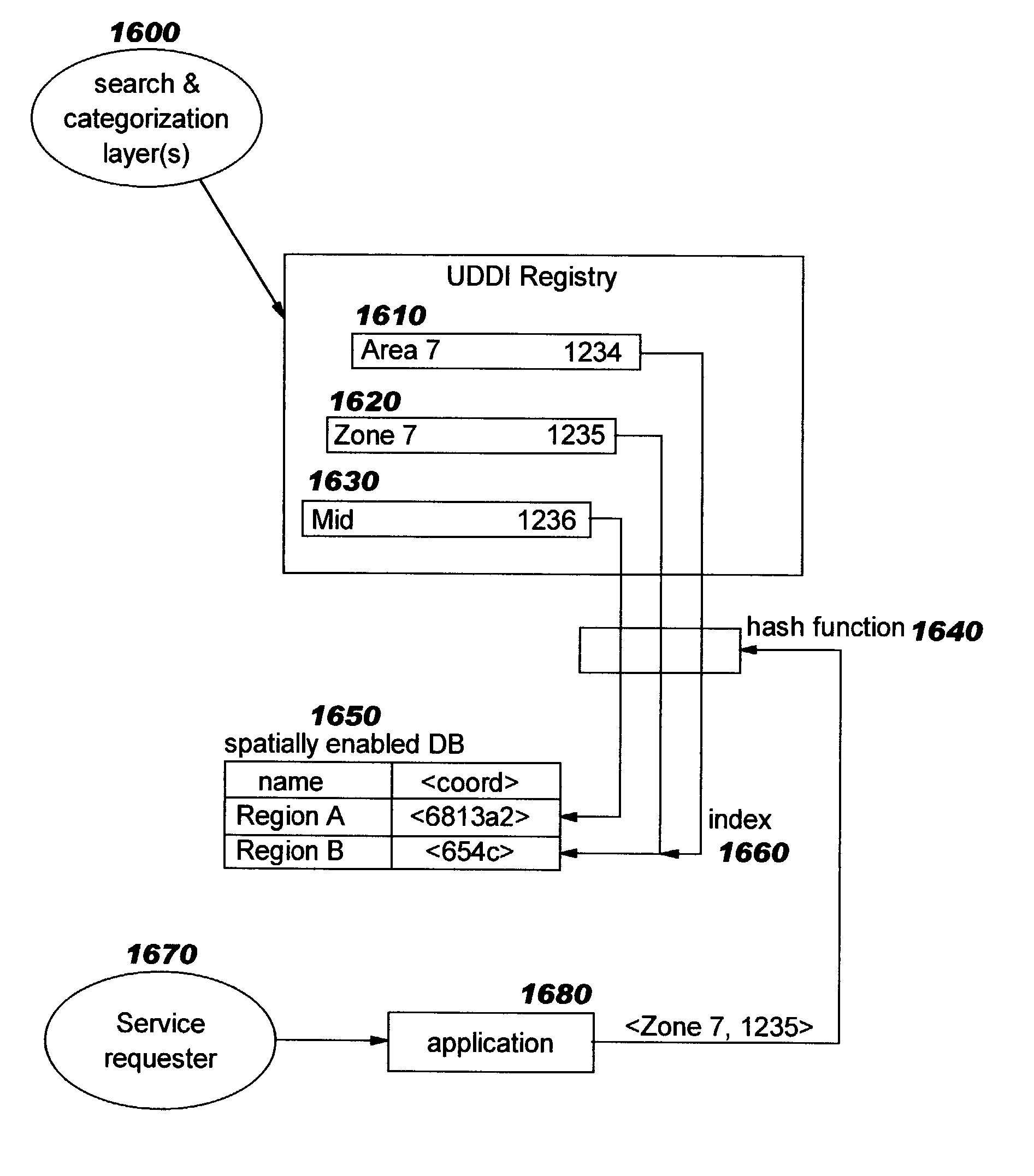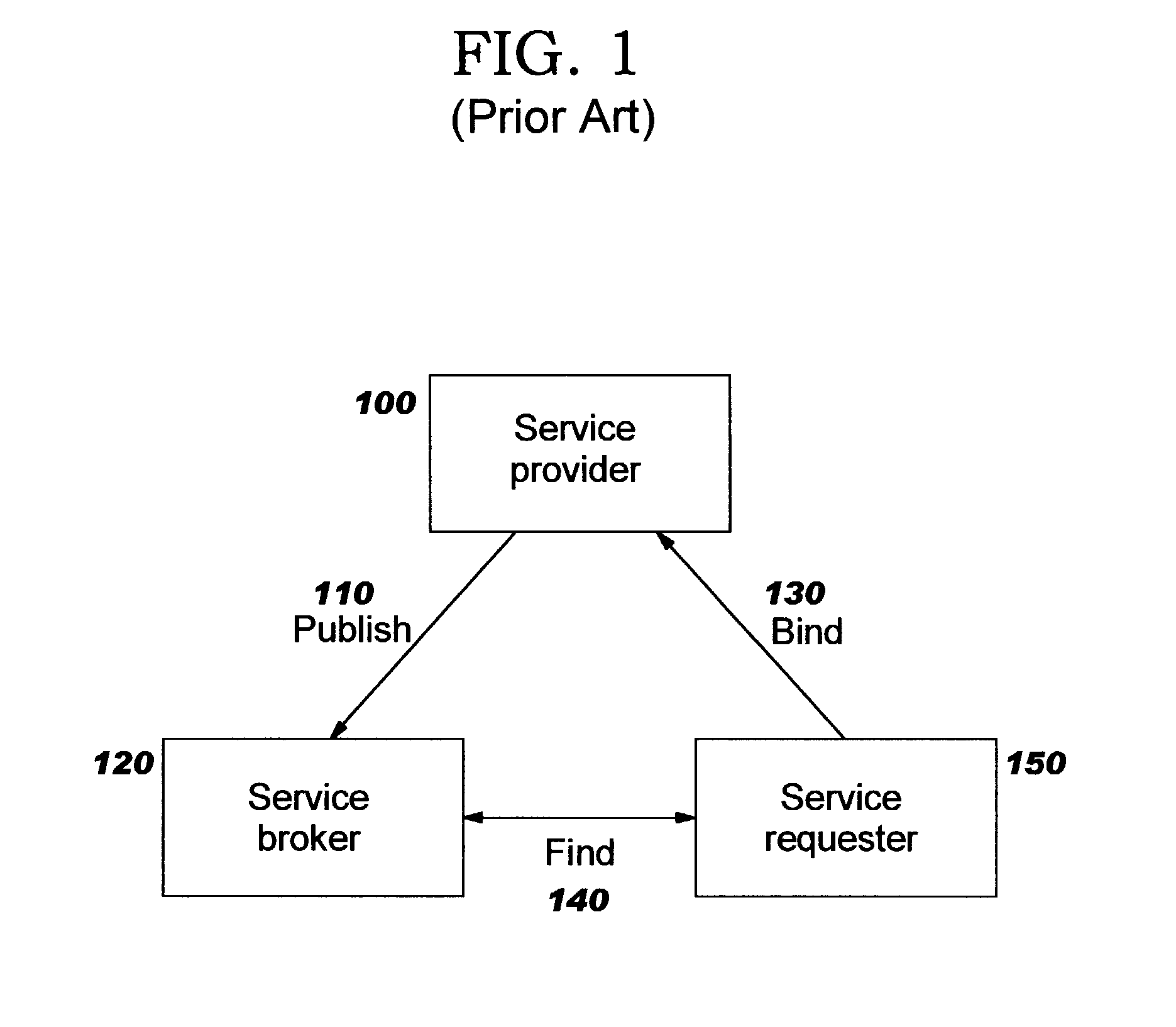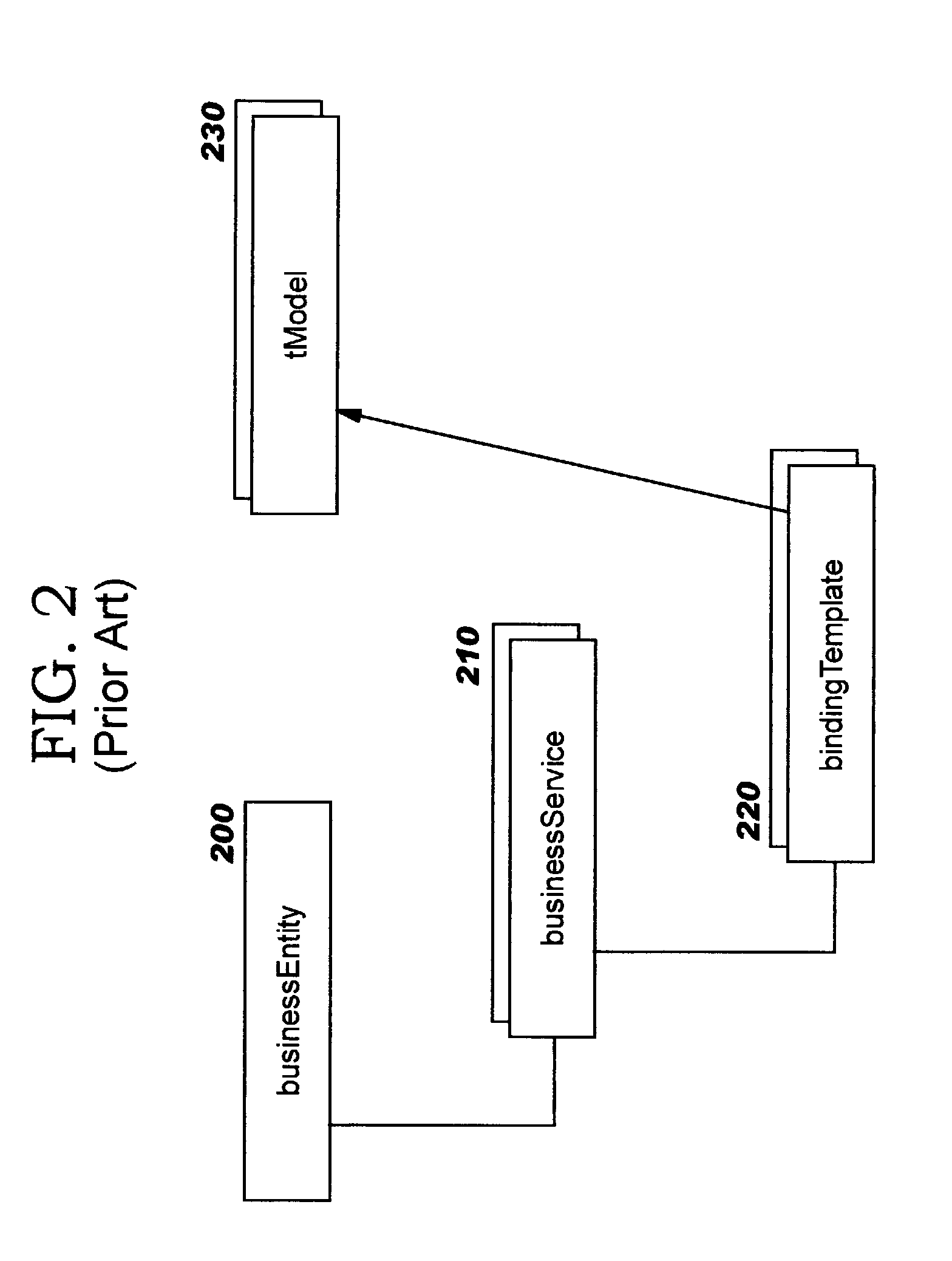Implementing geographical taxonomy within network-accessible service registries using spatial extensions
a technology of geographical taxonomies and service registries, applied in the field of computer programming, can solve the problems of large volume of data within network-accessible registries and complex search process, and achieve the effect of improving categorizing techniques
- Summary
- Abstract
- Description
- Claims
- Application Information
AI Technical Summary
Benefits of technology
Problems solved by technology
Method used
Image
Examples
Embodiment Construction
[0040]As discussed earlier, UDDI is an example of a network-accessible registry technique with which businesses may list their services and with which service requesters may find businesses providing particular services. Distributed application integration in client / server networks may be achieved by issuing UDDI requests to locate distributed services through a UDDI registry, and then dynamically binding to the located service. In this manner, service requesters are provided with transparent access to program components which may reside in one or more remote locations. However, the volume of taxonomy information that will be stored in registries is expected to make searching complex, and in some cases otherwise-valid results may be missed in a search because the searcher has used a value or values from one taxonomy while available services that would meet all of the other search criteria have been categorized using values in one or more other taxonomies.
[0041]The present invention ...
PUM
 Login to View More
Login to View More Abstract
Description
Claims
Application Information
 Login to View More
Login to View More - R&D
- Intellectual Property
- Life Sciences
- Materials
- Tech Scout
- Unparalleled Data Quality
- Higher Quality Content
- 60% Fewer Hallucinations
Browse by: Latest US Patents, China's latest patents, Technical Efficacy Thesaurus, Application Domain, Technology Topic, Popular Technical Reports.
© 2025 PatSnap. All rights reserved.Legal|Privacy policy|Modern Slavery Act Transparency Statement|Sitemap|About US| Contact US: help@patsnap.com



